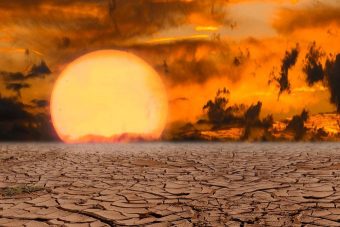
Climate change and extreme weather are threatening human health and safety, food, water and energy security and the environment in Latin America and the Caribbean. The impacts span the entire region, including Andean peaks, mighty river basins and low-lying islands, according to a new report from the World Meteorological Organization (WMO). It flags concerns about fires and the loss of forests which are a vital carbon sink.
The “State of the Climate in Latin America and the Caribbean 2020″ provides a snapshot of the effects of increasing temperatures, changing precipitation patterns, storms and retreating glaciers. It includes transboundary analyses, such as of the drought of the South American Pantanal and the intense hurricane season in Central America-Caribbean. It provides a detailed regional breakdown of worsening global climate change indicators.
The report and an accompanying story map show how marine life, coastal ecosystems and the human communities that depend on them, particularly in Small Island Developing States, are facing increasing threats from ocean acidification and heat and rising sea levels.
More:
The report was released at a high-level conference on 17 August, “Working together for weather, climate and water resilience in Latin America and the Caribbean” under the auspices of WMO, the UN Economic Commission for Latin America and the Caribbean (UNECLAC), and the UN Office for Disaster Risk Reduction (UNDRR).
It follows the release of the Intergovernmental Panel on Climate Change report on Climate Change 2021: the Physical Science basis, which said that temperatures in the region have increased more than the global average and are likely to continue to do so. It also projected changing precipitation patterns, more sea level rise, coastal flooding and marine heatwaves.
“Latin America and the Caribbean (LAC) is among the regions most challenged by extreme hydro- meteorological events. This was highlighted in 2020 by the death and devastation from Hurricane Eta and Iota in Guatemala, Honduras, Nicaragua and Costa Rica, and the intense drought and unusual fire season in the Pantanal region of Brazil, Bolivia, Paraguay, and Argentina. Notable impacts included water and energy-related shortages, agricultural losses, displacement and compromised health and safety, all compounding challenges from the COVID-19 pandemic,” said WMO Secretary-General Prof. Petteri Taalas.
You can read the whole report HERE.
Source: WMO



